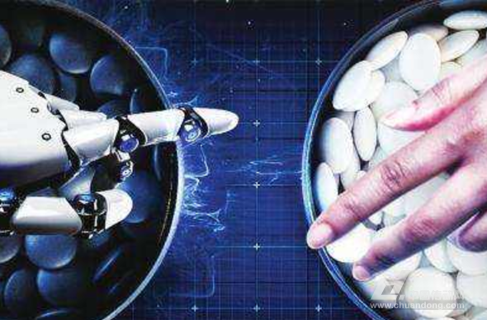AI sounds very far away, but it has infiltrated our daily work and life. In the not-too-distant future, the development of the Internet, big data, hardware, software optimization, and even the participation of the whole society, artificial intelligence will truly enter the life from the laboratory, and it will become part of changing our lives. The more meat and animal products we eat, the faster we consume the earth's resources. Can AI design new ways for vegetarians to taste better and help humans create a “no meat world”?
At present, some entrepreneurs are looking for answers in hopes of AI. They want to produce something similar to texture and texture, making it a real beef burger. Meat is not their only goal: mayonnaise, cookies, cheese, chocolate, and all other foods produced using animal ingredients are within their sight. Of course, the idea of replacing meat products is not new, but AI has provided it with a more powerful and promising method. It allows food scientists to explore new ingredients, develop surprising new recipes, and find innovative ways to replicate the delicious fats and proteins in eggs, milk, and meat.
With population and economic growth, the demand for meat in the world is still increasing. Even in countries that are not rich, meat consumption remains high. It is estimated that in the United States and the United Kingdom, the proportion of vegetarians (not to mention vegans) is only single digits. Josh Tetrick, founder and CEO of food startup Hampton Creek, added some vegetarian foods to the basic database. Subsequently, he was introduced and he started to contact artificial intelligence. A powerful machine learning algorithm can help him find new ingredients or recipes in a systematic way to replace meat products.

The first step in finding alternatives is to identify as many candidate targets as possible by looking for edible plants. Even people who eat these foods every day will not have any hints that they can use to replace pork or eggs. Then analyze the food. Researchers must figure out what constitutes each plant component and the ratio of each component, which needs to be understood at the molecular level. All of this data is transferred to a database of thousands or even millions of entries, depending on the level of detail in the analysis. According to data from the Food and Agriculture Organization of the United Nations (FAO), there are more than 250,000 kinds of edible plants in the world, and there are countless varieties of each plant.
The problem is that "the interaction between compounds is very complex", which means that many things will happen in unpredictable ways. It seems that this problem is not difficult enough, and there are also issues with how these different components affect each other. Researchers need to rack their brains to handle a large number of variables, and at this time AI can play a role, it does not need to taste each one to find the answer. Although AI did not get the correct results for the first time, it learned lessons and made improvements every time it made mistakes. This is usually caused by human surprises.
Recently, Hampton Creek found that the Indian leguminous "mung bean" contains an egg white with similar properties to scrambled eggs. One of the most dazzling formulas is the chocolate skin: a strange combination of broccoli, coriander, mushrooms and nuts, but they will not share with us. So far, these companies have used AI methods to make emulsions or liquid foods such as mayonnaise, scrambled egg substitutes or cookie dough, but solid foods are more difficult to imitate.
The big goal of the research was to replace meat, and both start-ups were using different approaches to this muscle problem. Hampton Creek is training labs for muscle and fat cells and is studying how to feed these cells with plant-based nutrients. NotCo is looking for ways to recreate meat with only plant ingredients. But even AI, their progress is very slow. However, creating these new foods is only the first challenge. Convincing the world to eat it is another matter.
Dietary tendencies are also closely related to cultural backgrounds. If these new foods are formulated to cater to the tastes of Westerners who operate AI, they are doomed to fail. Whether or not the AI finds a strange combination to replace meat, cheese, or eggs, it is not known whether people can accept these new types of foods because they can cater to people's preferences.
Fiber Optic Adapter,LC Fiber Adapter,LC Adapter
Ronde Electronic Co., Ltd. , http://www.gdvgacable.com
没有评论:
发表评论